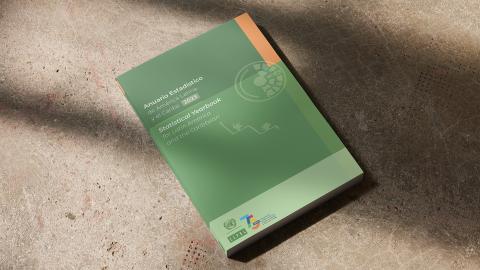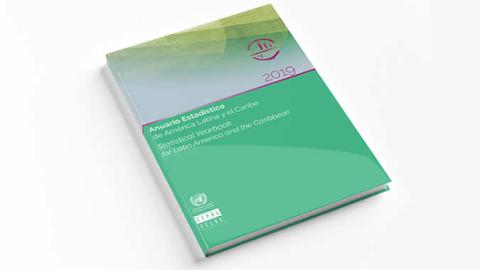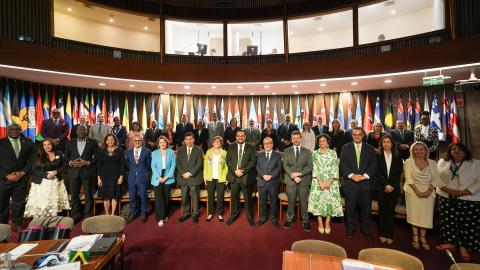DAY 1 – 22 November, 2022
8:30 - 9:00: - Registration
9:00 - 10:00: - Opening Ceremony
10:00 – 10:20 - Introductory Presentation: The DA12th project, Georgina Alcantar, ECLAC
10:20 – 11:10 - Session 1: Disaster Statistics: Advances in the region
11:10 – 11:30 - Coffee Break
11:30 – 12:00 - Presentation: Statistical Conference of the Americas: Working group on disaster statistics
12:00 – 12:30 - Session 2: How to strengthen sustained production, collection, dissemination and use of environment, climate change and disaster statistics?
12:30 – 13:30 - Lunch break
13:30 – 14:00 - Group work: participants discuss and define critical steps to develop the environment, climate change and/or disaster are in their organisations
14:00 – 14:30 - Presentations: Preparing an environment/climate change/disaster statistics compendium which impacts policymaking
14:30 – 15:00 - Group work: participants discuss and define critical steps to develop and use an environment/climate change statistical compendium for policymaking
15:00 – 15:30 - Reporting back from group work
15:30 – 16:20 - Panel discussion: How do better environment, climate change and disaster indicators at the national level contribute to building resilience at the regional level?
16:20 – 16:30 - Conclusion of the day, Abdullahi Abdulkadri, ECLAC
DAY 2 – 23 November, 2022
8:30 - 9:00 - Registration
9:00 – 9:20 - Welcome, overview of Day 1 and introduction to the working group sessions
9:20 – 11:20 - Session 3: Dynamic working groups - better coordination and collaboration for more quality environment, climate change and disaster statistics and indicators
11:20 – 12:00 - Reporting back from working groups
12:00 – 12:30 - Slido session: takeaways from session 2
12:30 – 13:30 - Lunch break
13:30 – 14:20 - Panel discussion: How do you support and promote better coordination of key agencies for the environment, climate change and disaster data areas in Caribbean countries?
14:20 – 15:25 - Session 4: Where and how to leverage non-traditional data sources to produce and better use environment, climate change and disaster indicators?
15:25 – 15:30 - Conclusion of the day, Abdullahi Abdulkadri, ECLAC
DAY 3 – 24 November, 2022
8:30 - 9:00 - Registration
9:00 – 9:15 - Welcome, overview of Day 2 and introduction to the “World Café” tables
9:15 – 11:40 - Session 5: World Café tables: better data sharing processes for effective policy making
11:40 – 12:00 - Feedback from each table facilitator
12:00 – 12:30 - Slido session: lessons learned to improve data sharing
12:30 – 13:30 - Lunch break
13:30 – 14:45 - Session 6: Identifying countries' capacity development priorities and the way forward
14:45 – 15:00 - Evaluation of the Regional workshop
15:00 – 15:20 - Closing remarks
15:20 – 15:50 - Certificates delivery
15:50 – 16:00 - Conclusion of the day, Georgina Alcantar, ECLAC



